These are schemes cleverly designed to trick people out of their money by promising high returns on investments. Investment scams are commonly promoted on the internet. Fake and dubious share schemes are often marketed by telephone salespeople using high-pressure tactics and sophisticated selling techniques. Sometimes, investment scams are even promoted within groups of people who share common interests, making them appear more trustworthy. These scams come in various forms, but they tend to share common characteristics. Case studies highlight how some financial advisors attempt to cheat elderly individuals out of their principal amounts. Additionally, 25 government and education-based websites have been listed for reference purposes.

Cautions:
The higher the promised rate of return, the greater the risk, and the more carefully you should investigate.
Beware of schemes which
Promise very high returns with little or no risk – these offers are usually too good to be true.

Beware of offers which claim that
You must take up the offer immediately or you’ll miss the opportunity – legitimate companies do not pressure people to act without giving them time to research the deal.
-
Returns are said to come from “top 100 world banks,” “prime banks,” “top 25 European banks,” or similar claims – these agencies do not exist.
-
The offer is described as “private” and only available to a select few.
-
The scheme must be kept confidential in order to succeed – secrecy is a red flag commonly used to avoid scrutiny.
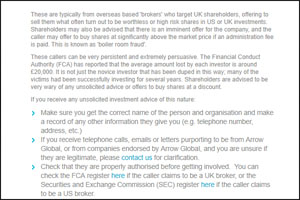
DID YOU KNOW? - About Investment Scam :
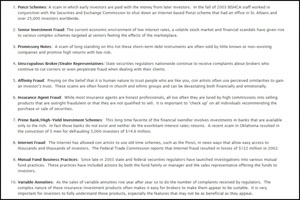
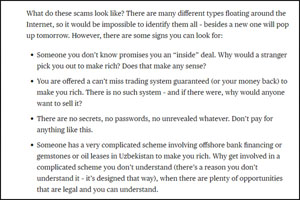
List of types of Investment Scams :
Advance Fee Scheme :
In an advance fee scheme, the victim is persuaded to pay a sum of money upfront in order to receive a promised benefit from an investment. Scammers often refer to this payment as a “security deposit” that will supposedly be returned upon the investment’s maturity. However, in the end, the victim realizes that there is no real investment — and neither the promised return nor the security deposit is ever recovered..

Affinity Scam :
An affinity scam is similar to a Ponzi or pyramid scheme, where the new investor's money is used to pay the interest of old investors. In an affinity scam, the scammers often target a homogeneous group of people, such as the elderly. The scammers involved in an affinity scam are often part of the group themselves or closely associated individuals who help spread the word about the investment scheme. The aim of the scammers in this type of investment fraud is to convince all members of the group to invest, thereby building a tight-knit structure of trust. Once the investment is made, the scammers exploit the investors' money and disappear without leaving any trace.
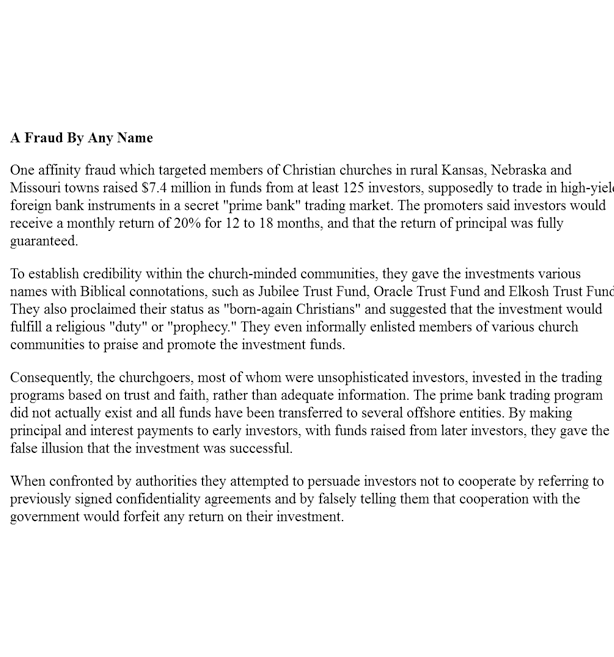

Annuities :
Annuity is another area where investment scams are often based. The scheme is simple: scammers persuade elderly individuals to invest their money for a long period, promising excellent interest rates. Once the scammers receive the investment funds, the investor is led to believe that the money is securely invested for the agreed-upon term. However, when the investment period ends, there is no trace of the funds, and the promised returns never materialize.

Commodity Pool Fraud
Commodity pool fraud usually involves individuals or firms that are not properly registered. They offer investments to victims through various commodity pools, but the money invested is often misused. Investors are misled with false promises of high profits and low risk associated with these commodity pool investments.
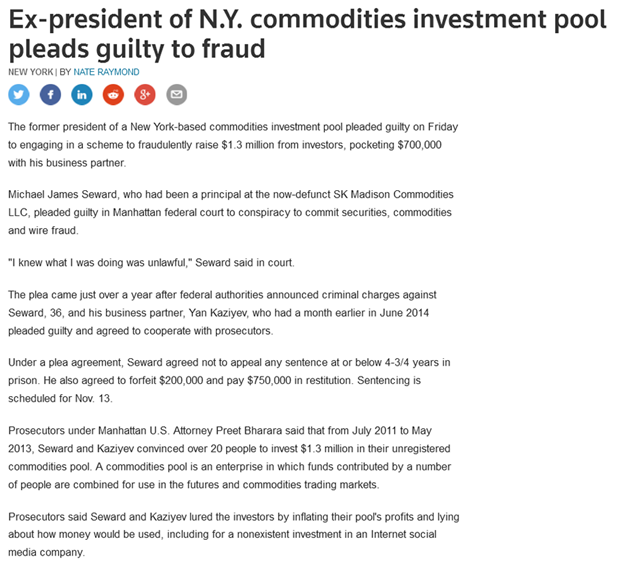
Exempt Securities Scam :
When a registered company sells its securities, it is required to issue a prospectus with securities regulators. Companies that do not issue a prospectus are referred to as issuing “exempt securities,” and they are considered exceptions to the standard rule. While not all companies offering exempt securities are fraudulent, the level of suspicion surrounding them tends to be higher. Investment scammers often pitch these exempt securities as opportunities from exceptional companies and promise high returns. Such companies structure the securities offering in a way that persuades the victim to invest.
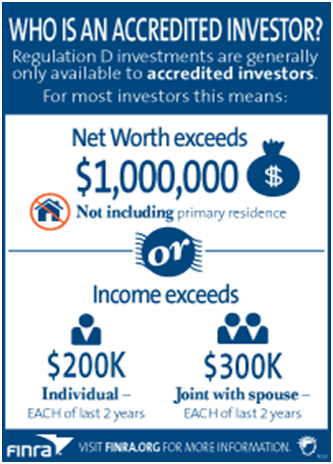
Forex Scam :
One of the most unpredictable types of investment scams is the Forex scam. The foreign exchange (Forex) market is one of the largest financial markets in the world and is particularly vulnerable to investment fraud. Investors attempt to earn profits by buying and selling foreign currencies based on fluctuations in exchange rates. Fraudsters exploit this by promoting their exchange agencies as legitimate. Unregulated firms often market their services online and persuade individuals to deposit money offshore. Once the investor realizes the agency is fraudulent, the funds become inaccessible. It is extremely difficult to outsmart the professionals who design Forex websites to appear completely legitimate.
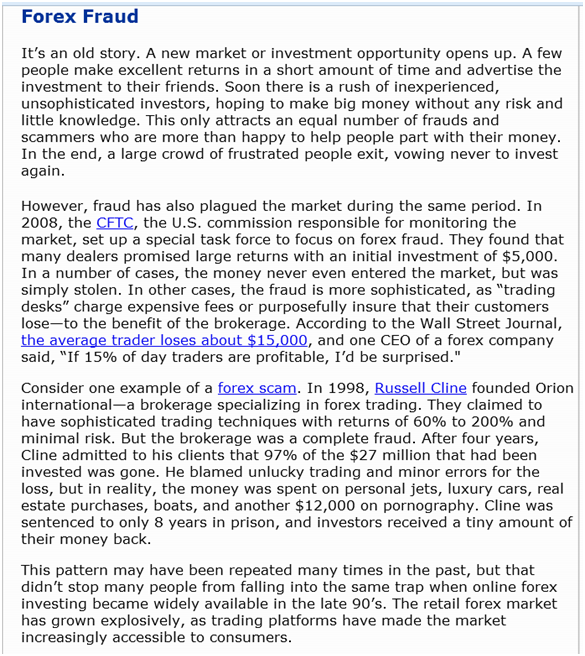
High yield investment scheme fraud
High yield investment schemes are a part of the internet that will run attractive websites over the internet with alluring rates of interest like 25 to 35% (monthly or yearly) in order to induce the victims to invest money. These websites that run such investment schemes are usually run by unregistered and unlicensed individuals. Investors must be very careful when come across any such scheme over the internet.
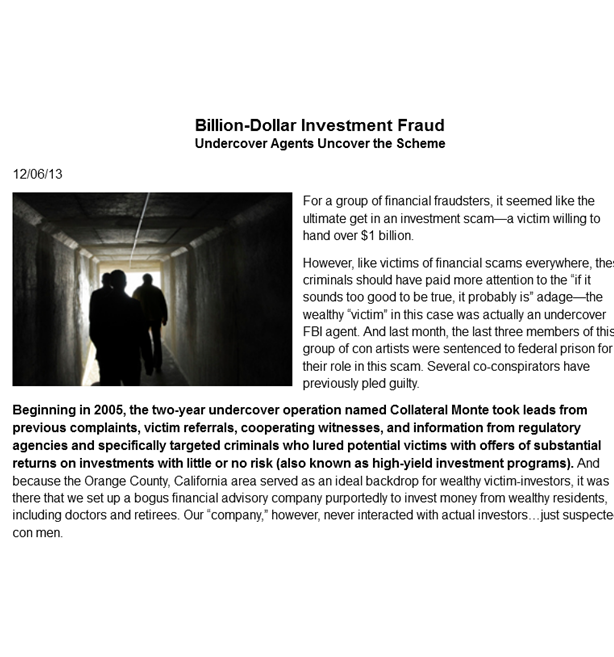
Internet and social media fraud
The internet and advancing technologies have given scammers a new arena to target victims with investment scams. These tools allow scammers to reach a large audience at minimal cost and effort. They use deceptive websites and digital tools to lure investors, making it difficult to distinguish between legitimate and fraudulent schemes. Major sources of internet fraud include social media platforms, online newsletters, and spam emails. These channels make it easy for scammers to approach their targets and difficult for victims to verify the legitimacy of the sources.

Investment seminars
Most investment seminars are scams because if the investment truly yielded high returns, the people running the seminars would be profiting from it themselves instead of seeking more investors. These seminars are often designed to promote "get-rich-quick" schemes that lure the audience into investing their money. Additionally, they rely heavily on referrals to attract a larger audience and gain more investors.

Lending loan scams
Lending loan investment schemes are not trust-worthy as the investor is not aware that the money that is invested as a lending loan amount in really invested on a credit worthy loan or is just a fake investment plan. The investing company may send reports every month stating the returns that you loan amount is earning, but at the maturity period the victim realizes that the loan amount was not lent and the amount has become subject to investment fraud.

Microcap fraud
Lending loan investment schemes are often not trustworthy, as investors have no way of knowing whether their money is actually being lent out as a creditworthy loan or if it’s simply part of a fake investment plan. The investing company may send monthly reports showing supposed returns on the loaned amount, creating an illusion of legitimacy. However, at the end of the investment period, the victim often discovers that the loan was never issued and the entire amount has fallen prey to investment fraud.
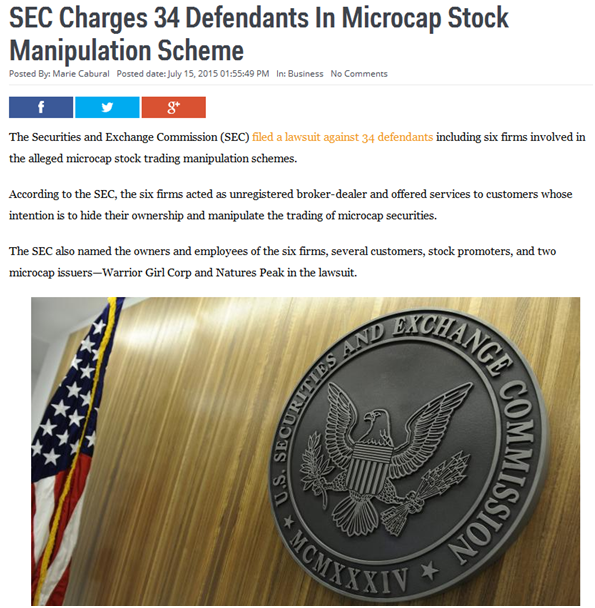
Off shore investing scam:
In an offshore investing scam, the scammer promises huge profits if the victim agrees to send their money to another country. The scammer often lures investors by claiming that offshore investments offer low or no taxes, making the opportunity seem highly attractive. In reality, there are significant risks involved in transferring money offshore. Things can go wrong at any moment—you could end up facing penalties from your government, while the fraudsters vanish with your money. Offshore investment schemes are highly dangerous and especially vulnerable to fraud.
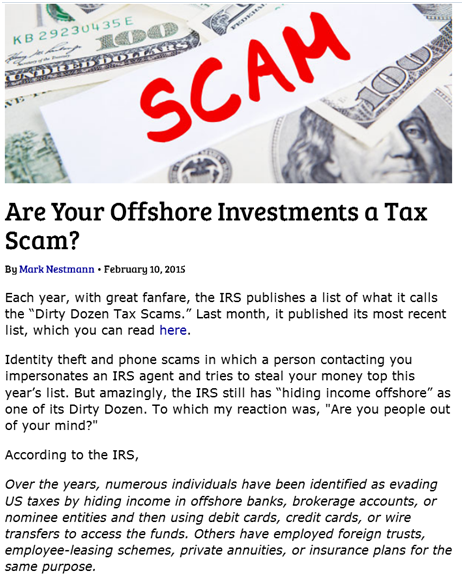
Pension scam:
The Pension scam is often targeted at senior citizens. The targets of these scammers are often people who have retirement savings in a Locked-In-Retirement Account (LIRA). This scam is often promoted through media sources like Newspaper with attractive advertisements that tap you into locked in funds. In order to invest in these funds they require you to sell the LIRA money to buy the shares of the new start-up company. The promoters say that the money you withdraw will be non-taxable and you will receive interest for the money you have invested. But once the formalities are over, the promoters are no more there and so is your LIRA money.

Ponzi / pyramid scheme:
In a Ponzi or pyramid scheme, scammers build the investment structure using the investors’ own money, paying out supposed quick returns in the form of “interest cheques.” Investors are often impressed by the sudden returns and are encouraged to reinvest their money and refer friends and family. However, these interest cheques are simply recycled funds—either from their own initial investment or from money brought in by new investors. Eventually, when new investments stop coming in, the scammers run out of funds to pay returns. At that point, the fraudsters disappear, leaving the investors as victims of an investment scam.
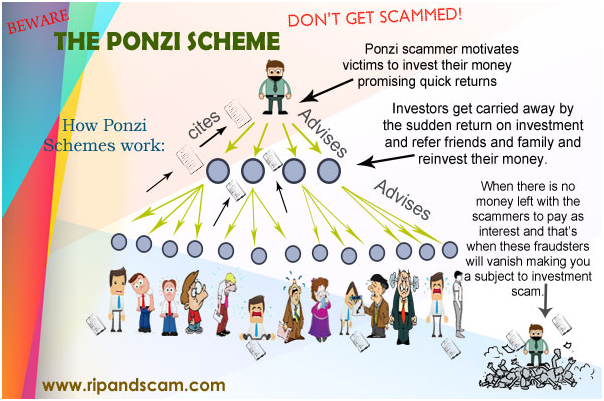
Pre IPO investment schemes
Pre-IPO (Initial Public Offering) schemes are scams in which fraudsters offer stocks of a company before its official public offering—an act that is typically illegal. These scammers lure investors by making them believe they are becoming part-owners of the company and that the investment will yield excellent returns. Such pre-IPO scams are often promoted through social media, cold calls, emails, or by persuasive salespeople.
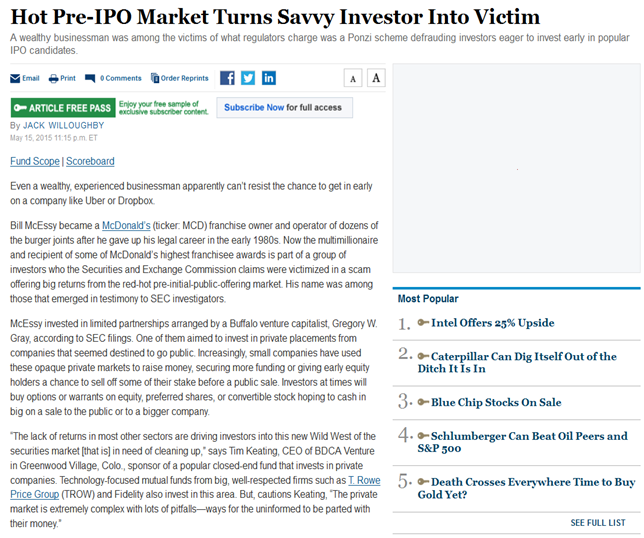
Precious metals investment scam
A precious metals investment scam involves fraudsters making deceptive promises of high returns from investments in metals like gold, silver, platinum, and others. These scammers often pose as legitimate metal dealers and try to convince investors that there is significant demand and that prices are expected to rise sharply. They create a false sense of urgency and opportunity, making it appear as though investing now will lead to huge profits. Fraudsters are becoming increasingly skilled at manipulating victims, making it easier for people to fall prey to precious metals investment scams.

Prime Bank scam
The term "Prime Bank" typically refers to the top 50 banks in the world, which are known for trading high-quality, low-risk financial instruments. However, in recent times, fraudsters have misused this term to deceive investors into parting with their hard-earned money. They falsely claim that the funds will be invested in trading Prime Bank financial instruments and secure deposits that promise exceptionally high returns. Unfortunately, in the end, these scammers vanish with the money, leaving the victim as yet another casualty of a Prime Bank investment scam.
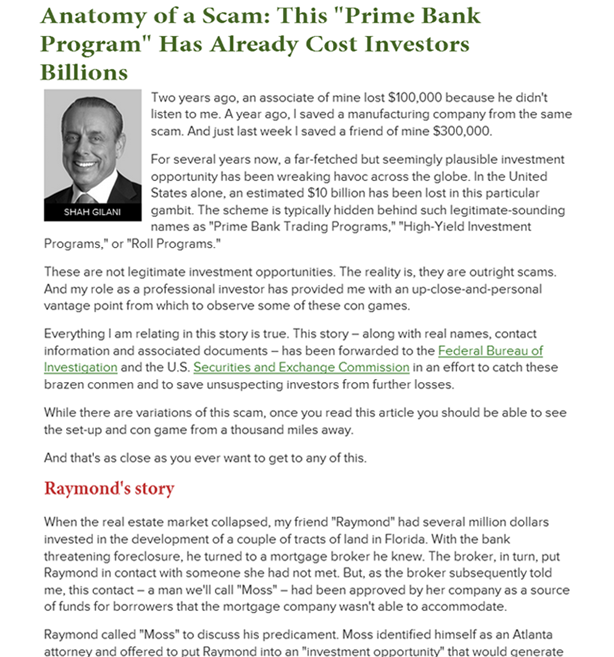
Promissory notes
Promissory notes are sometimes used as a form of debt instrument by companies to raise capital. They typically involve investors lending a lump sum of money to a company in exchange for a fixed return, including interest on the full amount. However, scammers exploit this concept by collecting large sums of money under the guise of issuing promissory notes, only to disappear without a trace—leaving investors defrauded and with no legitimate claim. The primary targets of this type of investment scam are often elderly individuals or those in the later stages of retirement.
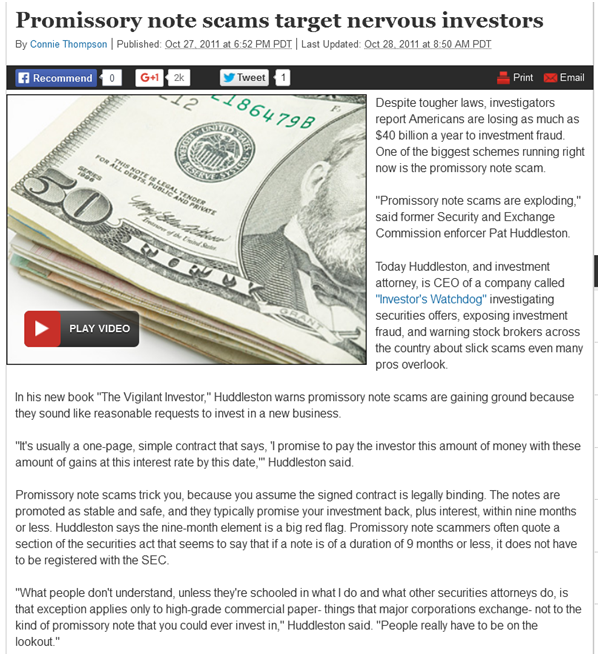
Pump and dump scam
In a pump and dump scam, investment scammers work through lists of potential investors to promote a deal on low-priced stocks. The scammer who contacts you often owns a large amount of the stock, which may not even represent a legitimate business. As more and more investors buy shares, the value of the stock rises sharply. Once the price reaches a peak (which the scammer anticipates), they sell off their shares, causing the stock's value to plummet drastically. You’re left holding worthless shares, and ultimately become a victim of an investment scam. Hence the name, "pump and dump" scam.
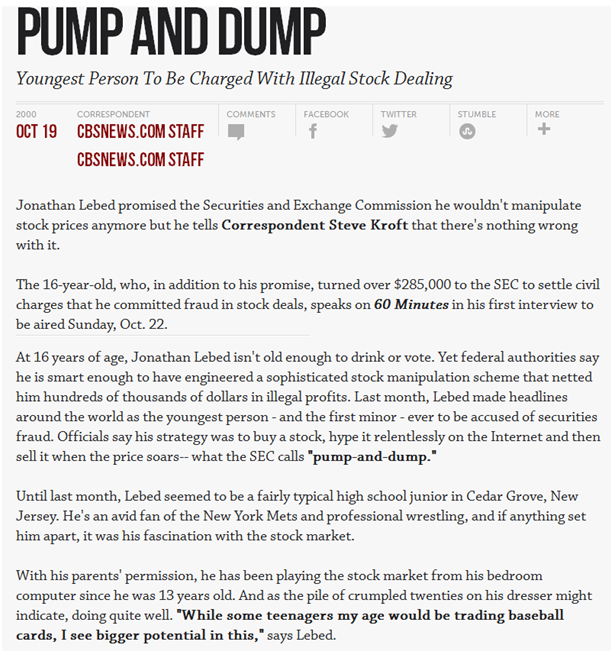
Unregistered investments
Unregistered investments are schemes in which scammers create fake companies using forged registration documents and release stocks at minimal prices. Investors are led to believe that the company is legitimate and are encouraged to purchase these stocks. Once a substantial amount of money is pooled from multiple investors, the scammers disappear—leaving no trace of the company or the investment.
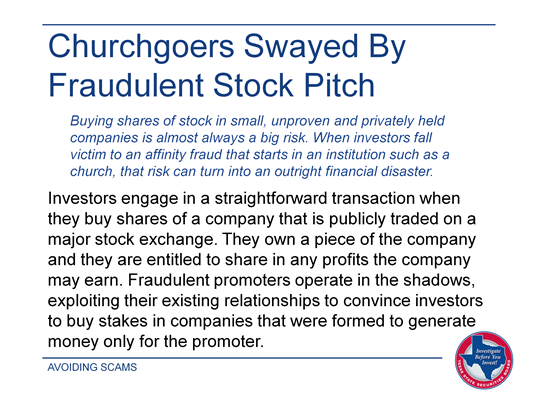
Types :
Feel Free to use our Spam Checker Tool
We are providing a Spam Checker Tool for your convenience. Here, you can enter an email address or contact number that you suspect to be part of a scam. This tool cross-references our spam database and informs you whether the email or phone number is legitimate or fraudulent.
You can also report a scam to the United States government — file a complaint about a scam or any other related crime through the appropriate official channels.
Related Scams:
Holiday Scams
As holiday bookings reach their new year peak, consumers are warned to look out for fraudulent travelRead More...



























